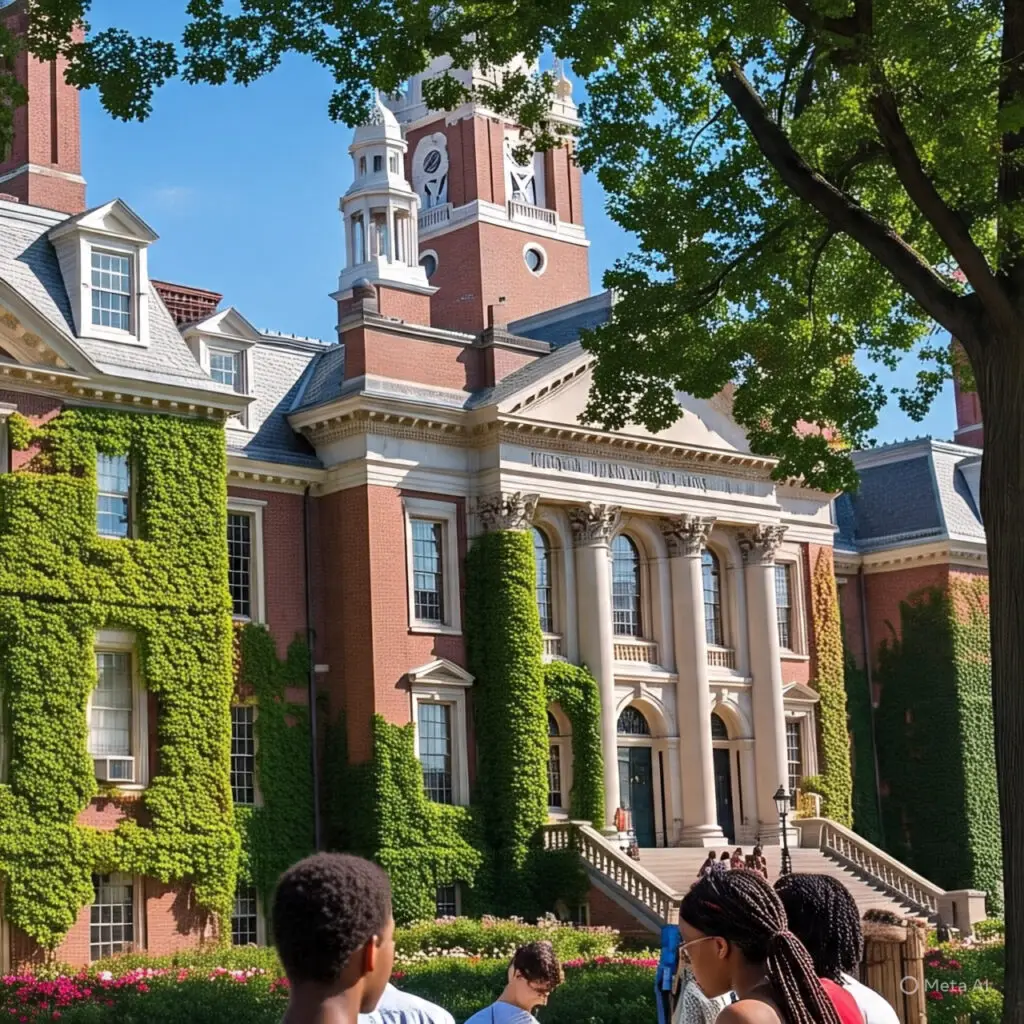Introduction
Ever heard someone say, “That person went to Harvard,” and immediately felt impressed? That’s the power of Harvard University—a name synonymous with brilliance, innovation, and prestige. As the oldest institution of higher learning in the United States, Harvard doesn’t just educate; it transforms.
Historical Background

Establishment in 1636
Harvard was founded in 1636, even before America was a country. Named after its first benefactor, John Harvard, the university began with a mission to train clergy for the New England colonies.
Early Academic Focus
The early focus was on theology and classical studies. But over the centuries, Harvard evolved into a multidisciplinary academic empire.
Growth into a Global Powerhouse
From a small colonial college to a global institution, Harvard has stayed ahead of its time in almost every field—law, medicine, business, science, and the arts.
Campus and Infrastructure
Iconic Harvard Yard
The heart of the Harvard campus is the Harvard Yard, a green space surrounded by historic buildings. It’s a space that breathes tradition and legacy.
Modern Facilities
Despite its age, Harvard is anything but outdated. The Allston and Longwood campuses boast modern labs, tech hubs, and medical research centers.
Libraries and Museums
Harvard’s library system is the largest academic library in the world—over 20 million volumes! Add to that the Harvard Art Museums and Peabody Museum, and you’ve got a cultural goldmine.
Academic Structure
Undergraduate Education
Harvard College offers a liberal arts education, letting students explore before picking a major (called “concentration” here).
Graduate and Professional Schools
There are 12 degree-granting schools, including the famed Harvard Law School, Harvard Business School, and Harvard Medical School.
Faculty Excellence
Harvard’s faculty includes Pulitzer Prize winners, Nobel Laureates, and some of the world’s leading thinkers.
Research at Harvard
Global Research Impact
Harvard’s research touches every aspect of life—from genome editing to climate change to public health.
Interdisciplinary Centers
Harvard encourages collaboration through its many research centers that bridge law, tech, ethics, AI, and beyond.
Major Discoveries
Whether it’s the discovery of the smallpox vaccine model or breakthroughs in quantum computing, Harvard’s research is changing the world.
Admission Process
Application Requirements
Applicants need stellar grades, standardized test scores, recommendation letters, and extracurriculars. But Harvard looks deeper.
Acceptance Rate
With an acceptance rate under 4%, Harvard is extremely selective. You’ve got to stand out—and then some.
Holistic Review System
Harvard doesn’t just admit the smartest—it looks for the most passionate, curious, and driven.
Financial Aid and Scholarships
Harvard’s Generous Aid
Harvard’s need-blind admissions ensure your financial background doesn’t affect your chances. If you’re admitted, they’ll help you attend.
Support for International Students
Harvard offers full financial aid to international students, just like U.S. students.
Work-Study and Grants
Plenty of on-campus jobs and non-repayable grants are available for all students in need.
Student Life
Housing and Dining
First-year students live in Harvard Yard, then move into one of 12 Houses—each with its own dining hall, gym, and events.
Clubs and Organizations
With 400+ student-run clubs, there’s something for everyone—from politics to theatre to entrepreneurship.
Diversity and Inclusion
Harvard is home to students from over 150 countries, representing a mosaic of cultures, beliefs, and identities.
Notable Alumni
U.S. Presidents
Eight U.S. Presidents, including Barack Obama, John F. Kennedy, and Franklin D. Roosevelt, studied at Harvard.
Nobel Prize Winners
Harvard affiliates have earned 160+ Nobel Prizes—a staggering record.
Celebrities and Innovators
From Natalie Portman to Mark Zuckerberg, Harvard alumni shape pop culture and the tech world alike.
Technology and Innovation
Harvard Innovation Labs
The i-lab is a breeding ground for startups, offering mentorship and funding to student innovators.
Startups and Entrepreneurship
Dropbox, Facebook, and Ginkgo Bioworks all have Harvard roots. It’s a hub for game-changers.
Tech and Policy Research
Harvard leads in AI ethics, cybersecurity, and digital governance—defining the digital age.
Cultural and Global Influence
Harvard’s Role in Policy Making
Many global leaders consult Harvard’s faculty and research when crafting domestic and international policies.
Education Reform
Harvard’s Ed School is transforming how the world thinks about education, inclusion, and learning.
Global Outreach Programs
Programs like the Harvard Global Health Institute and HarvardX bring learning to the world.
Why Harvard?
Academic Prestige
Simply put: it’s Harvard. It opens doors globally and marks you as a thinker, doer, and leader.
Career Prospects
Harvard grads are sought after by Fortune 500s, NGOs, and government bodies worldwide.
Network and Alumni Support
With a network of over 400,000 alumni, help is always just a phone call or LinkedIn message away.
Conclusion
Harvard University is more than just a school—it’s a movement, a mission, and a monument to human potential. It molds leaders, fuels revolutions, and inspires generations. Whether you’re dreaming of walking through Harvard Yard or just admiring from afar, one thing’s for sure—Harvard represents the zenith of education.
FAQs
1. What is Harvard best known for?
Harvard is renowned for law, business, medicine, government, and liberal arts education.
2. How much does it cost to attend Harvard?
Around $80,000/year including tuition and living, but most students receive aid.
3. Can international students apply?
Yes! Harvard encourages applications from around the world and offers aid.
4. What is student life like at Harvard?
Challenging, diverse, and vibrant—with loads of clubs, events, and cultural life.
5. Is Harvard worth it?
In terms of education, opportunity, and global reputation—absolutely.